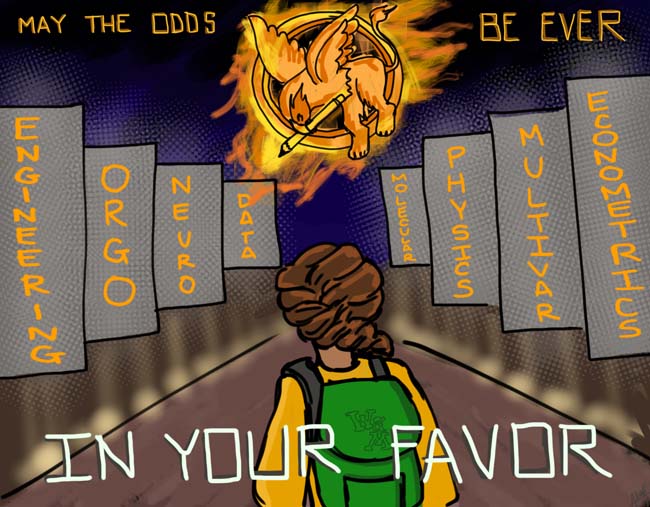Weed-out courses are classes that have been specifically created to weed out the many students who come to college with the goal of majoring in a particularly academically rigorous program — often within the fields of science, technology, engineering and mathematics. Colleges are apparently so friendly that they let you dip into the water a little bit instead of simply weeding you out via IQ test. Then, if you fail, you have no one else to blame but yourself, because your nature just doesn’t fit your proposed course of study.
Weed-out courses deprive students of their passions and dreams without a sufficient reason.
Proponents of weed-out courses would say that such courses are fair game for everyone: If you get past them, you can continue in that major. If not, there’s no point studying the subject anyway. I respond that it’s fair for me to have an F on my transcript if I got an F on a test, but it’s never fair to be outright denied when it comes to academic passions and interests.
A great amount of research has confirmed that students tend to do much better in college after two or three semesters, and evidence for improvement over time can be found in our daily lives. I’ve always heard a friend of mine with great talent for playing cello say that after several weeks of practicing a new piece, he feels more comfortable with it. If a new piece of music requires several weeks of preparation from an expert, then I ask: Isn’t it imprudent to weed out a student after just one or two semesters’ study, while he or she may still be making progress?
Even if students fail a weed-out course, it’s not appropriate to assume that students are wasting their time by studying that subject. As an old-fashioned person, I believe in the ultimate value of the education itself, rather than in the monetary benefits people try to squeeze out of education. However, career is a necessary concern, and immediately weeding students out of a course of study denies them the possibility of studying something they might find useful later on. If you get nothing at the beginning, chances are you will get nothing at the end.




































